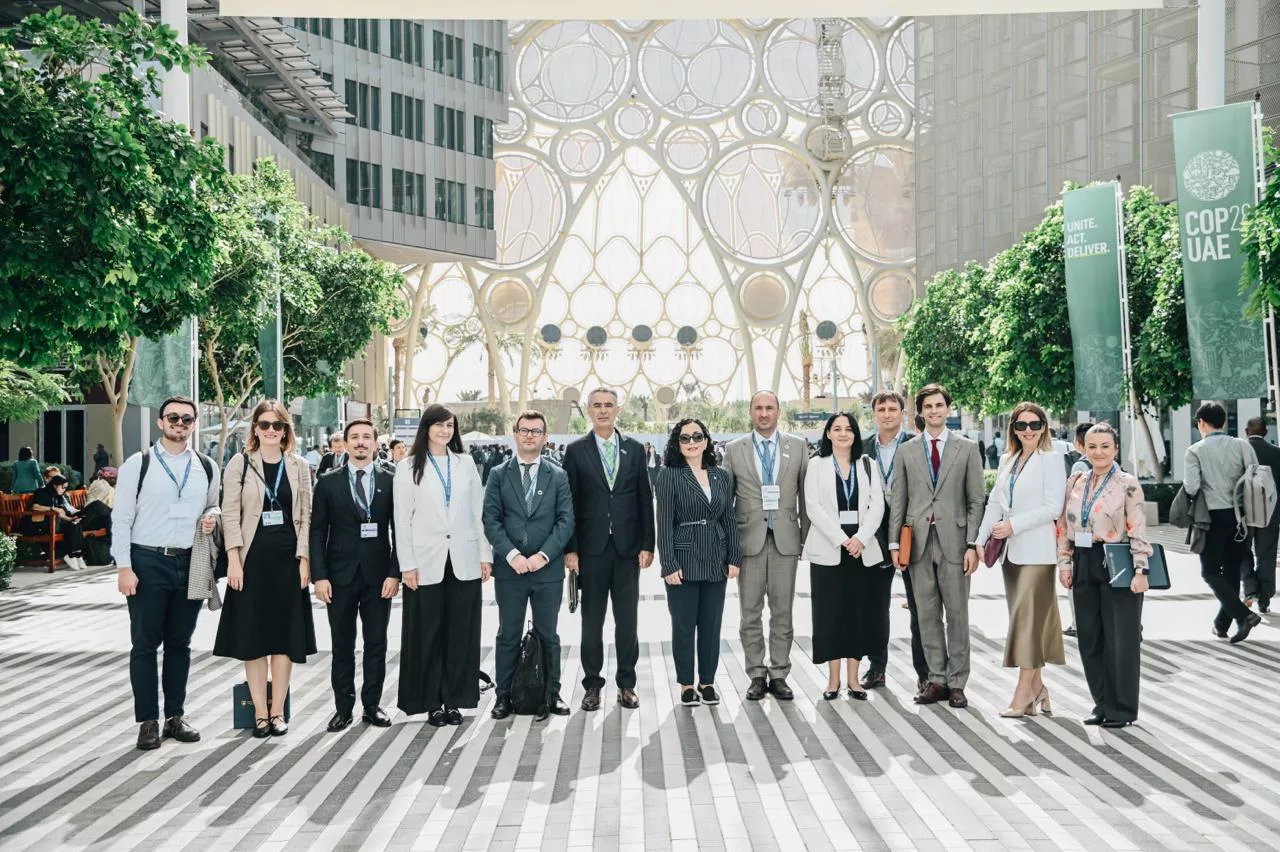A Strong Climate Commitment Against the Odds: Kosovo’s Path to Sustainable Governance
by Sofia Shabafrouz, GIZ / EUKI
In the heart of the Balkans, Kosovo is making remarkable strides with climate governance, all the while its independence is still disputed under international law. Committed to decarbonisation and active participation in the global climate dialogue, the small country has recently adopted a basic climate law, key policies and an action plan. Now Kosovo must overcome significant obstacles and move on to secondary legislation and implementation. In this series of articles, we take a closer look at the six Western Balkans countries and the progress they are making on the climate governance front. Part 3/7: Kosovo assumes climate responsibility.

Kosovo’s declaration of independence from Serbia in 2008 is not universally recognised. This hinders the nation’s participation at international level in organisations and accords, not least the United Nations Framework Convention on Climate Change (UNFCCC) and the Paris Agreement. It also restricts Kosovo’s ability to fully engage in multilateral fora such as the Conferences of the Parties (COPs) and to contribute directly to global climate negotiations and decision-making processes. One major concern for the country is the limited access it has to many of the key international funding mechanisms and support opportunities. Given its status within the UN, Kosovo is not bound by any global climate obligations. Nevertheless, it is determined to play its part in the global fight against climate change. Kosovo has voluntarily committed to the 1.5°C target and is aligning its climate governance efforts with EU legislation, having submitted its application for EU membership in 2022.
Ambitious climate targets
As a signatory to the Sofia Declaration on the Green Agenda for the Western Balkans (GAWB), adopted in November 2020, Kosovo has ambitious targets for phasing out coal, boosting renewables and promoting innovation. These are set out in the country’s Energy Strategy for 2022-2031, its National Energy and Climate Plan and its Law on Climate Change. Kosovo is also preparing its own voluntary Nationally Determined Contributions (NDCs) within its re-established Climate Change Council. These NDCs, presented at a side event during COP28, are based on the nation’s goal of achieving a reduction of up to 49 percent in its greenhouse gas emissions by 2030, relative to 2016 levels. Additionally, the country plans to increase the share of renewable energy in its energy mix to at least 35 percent within the same period. As well as working on mitigation policies, Kosovo is also devising a Strategy on Climate Adaptation to build up its resilience.
Gazmend Berlajolli works for the Balkan Forum, a multi-sectoral platform promoting a resource-efficient, greener and more competitive Balkan region, that places a thematic focus on the circular economy. He says that, as both a forum member and a Kosovan citizen, he has recently witnessed positive reforms and trends in waste management, recycling and renewable energies. One example is a tariff on single-use plastic bags, with ongoing negotiations to ban them completely. According to Berlajolli, the Kosovan Government has also created many incentives to encourage the use of solar panels at private households and businesses in the country. Many completed and ongoing projects in this area have adopted a holistic approach to tackling climate change. ‘We need to tell those success stories, but also to boost implementation. Society should seek accountability from all stakeholders, including national and local policy-makers, the private sector and citizens, when it comes to taking a proactive role and contributing to the slow, yet positive change we are currently seeing in Kosovo,’ explained Berlajolli.
Kosovo shouldn’t be left behind
And it is about time. Like many other regions around the world, Kosovo is already experiencing the impact of climate change. The country is especially vulnerable to extreme weather events, such as drought and flooding in its river basins, as well as limited water resources. This can affect food security in the upper-middle-income country. The German Government is committed to security and stability in the region, supporting Kosovo’s participation in the COP to ensure that the nation’s climate protection efforts bear fruit. However, without a consensus within the UN on Kosovan independence (a breakthrough that seems an even more distant prospect with the current polarisation over Russia), the country cannot access new funding arrangements like the Loss and Damage Fund agreed upon by COP27 delegates in late 2022.
In the interests of a just transition and a fair and inclusive path for Kosovo, it is essential that the international community recognise the country’s vulnerability to climate change and provide alternative assistance in terms of funding, technology transfer, capacity-building and knowledge-sharing. Collaborative initiatives involving governments, civil society, academia and international organisations are crucial for enhancing Kosovo’s resilience and its ability to adapt to the adverse effects of climate change on its people and environment. Leaving Kosovo behind in the global response to climate change would not only undermine its development prospects, but also hinder wider efforts to achieve climate resilience and sustainability worldwide.
The EUKI project Climate Bridges was launched to give climate actors from Kosovo and the other five Western Balkans states an opportunity to network with other climate protection organisations from the region. It founded the Climate Bridges Network to foster dialogue and cooperation between civil society and local and national politicians across South-Eastern Europe.
